The American Right is Cracking at the Seams: "America First" vs. "Israel First"
Interview with Fuentes not only created a wave of outrage but also became an indicator of deep divisions within the conservative community. For many on the right, it was an opportunity to express their support for both Tel Aviv and influential donors within the party. Conservative commentators began to label Carlson as "the most dangerous anti-Semite in America," while for some Zionists, he became "an outsider" among them.
The question of support for Israel is once again becoming a litmus test for the right-wing movement, dividing the "insiders" and "outsiders," although clear boundaries between these groups have yet to be established.
Against the backdrop of these events, significant changes are occurring in American politics, including the recent victory of Zokhran Mamdani in the New York City mayoral election, who threatened to arrest Israeli Prime Minister Netanyahu if he visited his city and actively advocated for Palestine.
Republican Turmoil
Recently, the Republican Jewish Coalition held a summit in Las Vegas, where party elites discussed the issue of rising anti-Semitism within their ranks. Scandals, ranging from young Republicans praising Hitler in private messages to candidates boasting of "Nazi tendencies," have caused party officials to become seriously concerned.
Despite this, former White House press secretary Ari Fleischer stated that the party is "managing." "Republicans have a mild cold, while Democrats have a high fever," he noted.
Tucker Carlson has become the source of the greatest irritation. More and more Republican figures and influential commentators are beginning to distance themselves from him, especially after his criticism of Israel. His interview with Fuentes provided a convenient excuse for Republicans to demonstrate their loyalty to Israel, with signs in the hall proclaiming "Tucker is not MAGA."
Politicians have begun to emphasize the necessity of clear support for Israel. Some have stated that "anti-Semitism has become a tumor that needs to be excised." For example, pro-Israel supporter Randy Fine characterized Carlson as "the most dangerous anti-Semite in America" and "the inspirer of the modern hate movement."
Throughout the war in Gaza, party leadership has actively demonstrated its loyalty to its ally. Senator Ted Cruz recently stated: "This is a time of choice. I choose Israel and America," despite recent disagreements with Carlson on geographical issues.
Cruz also noted that over the past six months, he has observed more anti-Semitism on the right than ever before. According to him, "if you sit next to someone who claims that Hitler was 'really cool' and you don't object, you are complicit in evil."
Senator Rick Scott from Florida urged the party to clearly show that it does not support anti-Semitism and stands with Israel. Lindsey Graham added that "anti-Semitic and anti-Israel rhetoric will not lead to the victory of any Republican," while Congressman Byron Donalds called anti-Semitism "a cancer for the party."
Publicist and Jewish-Zionist Ben Shapiro characterized Carlson as "the most aggressive spreader of disgusting ideas in America."
Ironically, Republicans who previously mocked the "cancel culture" of Democrats are now themselves striving to "cancel" any criticism of Israel, excluding from their ranks those who question its special status.
Who is Ahead?
The scandal surrounding Carlson has become a catalyst for existing disagreements, revealing cracks between the traditional party elite and a new generation of right-wing media figures inclined towards "radical" ideas. Carlson himself has emphasized in his statements that Israel "deliberately bombs Christian churches" in Gaza and has openly criticized Christian Zionism as "heresy," which calls into question one of the main ideological pillars of the American evangelical right wing.
Among those also questioning traditional approaches are Congresswoman Marjorie Taylor Greene and conservative commentator Candace Owens. Greene distances herself from the neoconservative "pro-Israel consensus," while Owens criticizes support for Israel as part of a pressure system used by "right-wing elites" to control the rebellious.
These mutual accusations highlight a deep ideological conflict between supporters of "America First," who believe foreign policy should serve U.S. interests, and supporters of "Israel First," who see support for Israel as a moral obligation. Pro-Israel supporters argue that U.S. and Israeli interests coincide.
Previously, disagreements among Republicans mainly revolved around tax and immigration policies, but now the question of what is more important for the party—America or Israel?—is coming to the forefront.
Read also:
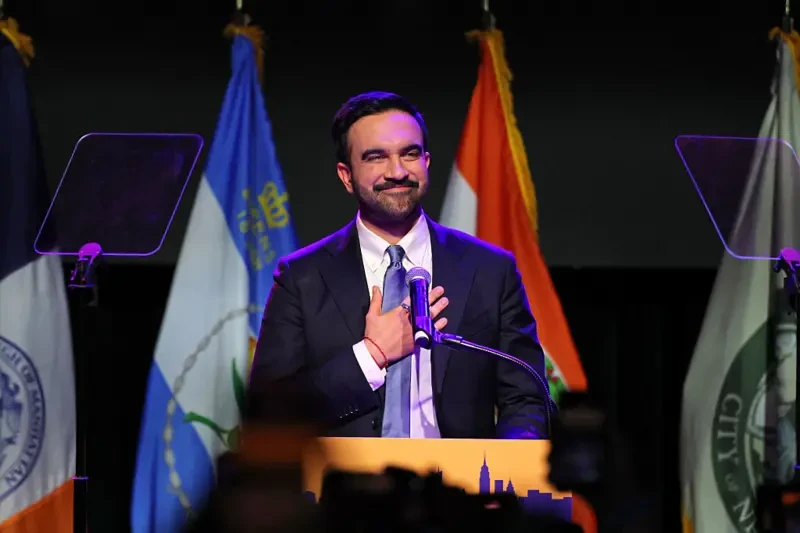
In the New York mayoral election, Zokhran Mamdani won. He will become the first Muslim in this position.
Zokhran Mamdani, a 34-year-old candidate from the Democratic Party, achieved a significant victory...
Elected New York Mayor Zokhran Mamdani Promised to Stand Up to Trump
In his address to supporters, Zokhran Mamdani, who won the election, emphasized the need to stop...
Israeli Foreign Minister Criticizes Istanbul Arrest Warrant for Netanyahu
Gideon Saar, Israel's Minister of Foreign Affairs, criticized the decision of the Turkish...

The Vice President of the USA called the vote in the Israeli parliament on the annexation of the West Bank an insult.
On Wednesday, hardline supporters in the Knesset initiated a preliminary vote on the annexation of...
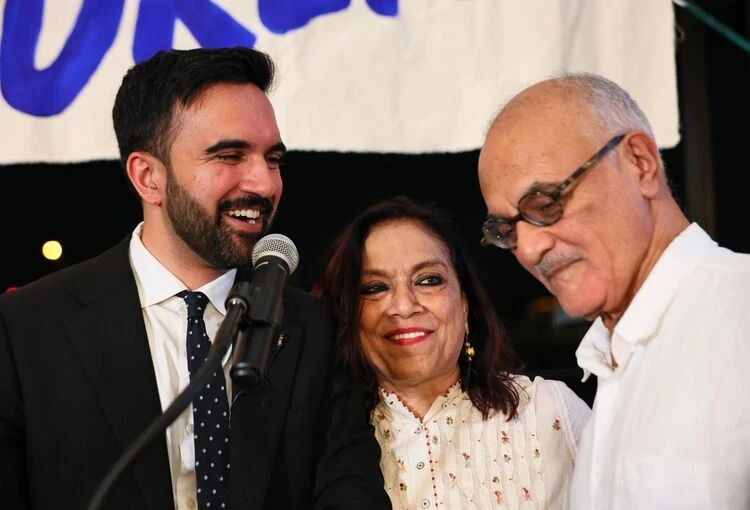
Zokhran Mamdani became the first Muslim elected as the mayor of New York.
Photo from the internet. Zokhran Mamdani won the New York City mayoral election In the New York...

Israeli Minister Urges New York Jews to Leave the City Due to Mamdani's Victory
Shikli also noted that "New York will probably never return to its former state, especially...
The Istanbul Prosecutor's Office issued an arrest warrant for Benjamin Netanyahu on charges of "genocide"
According to information presented by the prosecutor's office, an arrest warrant has been...

Israel attacked the Gaza Strip
The Palestinian tent camp in the Gaza Strip. Photo by Dawoud Abu Alkas / Reuters. According to DW...

Ceasefire Again Under Threat: Israel Attacked Gaza Strip
Israel accused Hamas militants of attacking its soldiers In response to the actions of the...

The Gaza Ministry of Health reported over 100 fatalities from Israeli strikes
Illustrative photo According to the Ministry of Health, the number of casualties from Israeli...

Religious Jews Face the Threat of Losing Voting Rights
Liberman also stated that individuals evading military service should face a number of sanctions,...
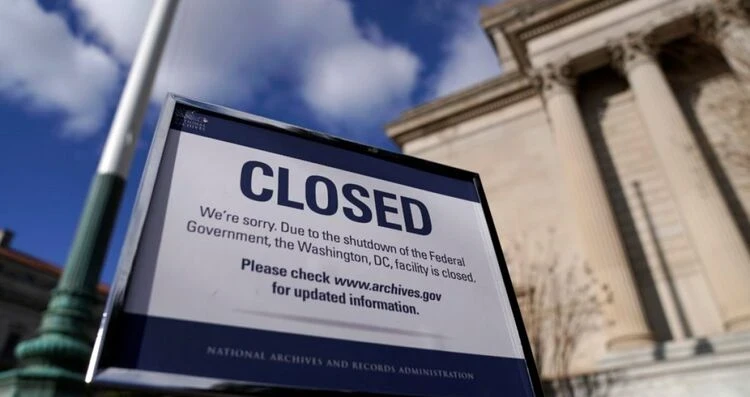
The shutdown continues in the USA. The longest in American history.
Photo from the internet For more than 35 days, the operation of several government services in the...

Netanyahu's Wife Asked Ministers to Sign a Letter Requesting a Pardon for Her Husband
According to reports from Israeli media, Sara Netanyahu attempted to convince ministers who had...

Residents of New York Can Choose a New Politician to Lead Their City and Challenge Trump
At a campaign event in the Upper East Side, Zohran Mamdani faced unprecedented attention from his...
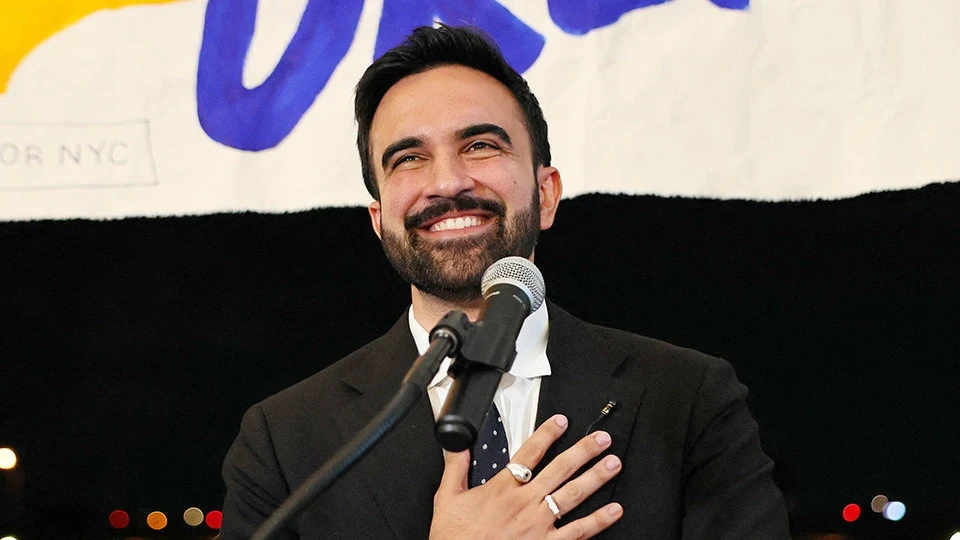
The socialist Muslim Zokhran Mamdani elected as the Mayor of New York
Zokhran Mamdani In the elections, Mamdani defeated former New York Governor Andrew Cuomo, who,...
Former U.S. Vice President Dick Cheney Has Passed Away
The family of Dick Cheney confirmed his death, citing complications caused by pneumonia and...
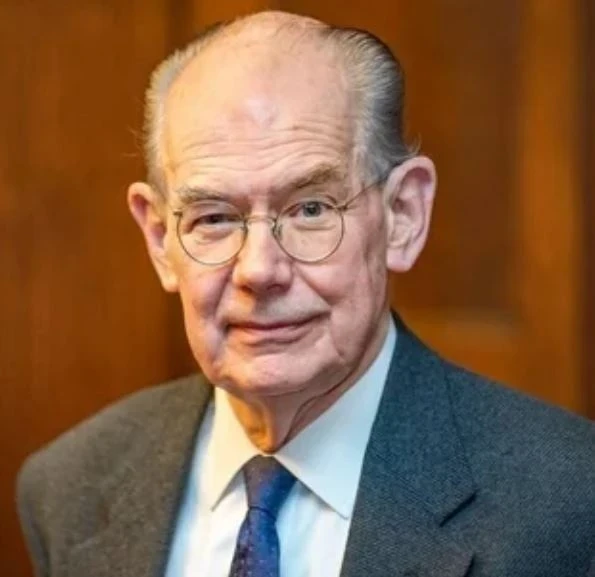
Mearsheimer: The Cuban Missile Crisis Became a Symbol of the End of Unipolarity
In an interview, Mearsheimer, the author of several scholarly works on global politics, shares his...
Trump refused to meet with Putin until a deal to end the war is ready
In an interview with journalists in Doha on October 25, Trump stated that he finds it pointless to...

Crawford: Victory Over Canelo - One of the Highlights of My Career
Recently, Terence Crawford, the American boxer, commented on his historic victory over Saul...
In the city of Kara-Kul, 76 vacant job positions were presented at the fair
On October 22, a fair titled "Job Fair and Career Guidance" took place in Kara-Kul,...
Sadyr Japarov to Meet Donald Trump at the "Central Asia - USA" Summit
At the summit, which will take place in Washington, a meeting is expected between U.S. President...

In Tucker Carlson's documentary about September 11, it is claimed that the attacks were orchestrated by Saudis, while the CIA covered them up.
Author: Paul Wood — worked as a foreign correspondent for the BBC for 25 years: in Belgrade,...
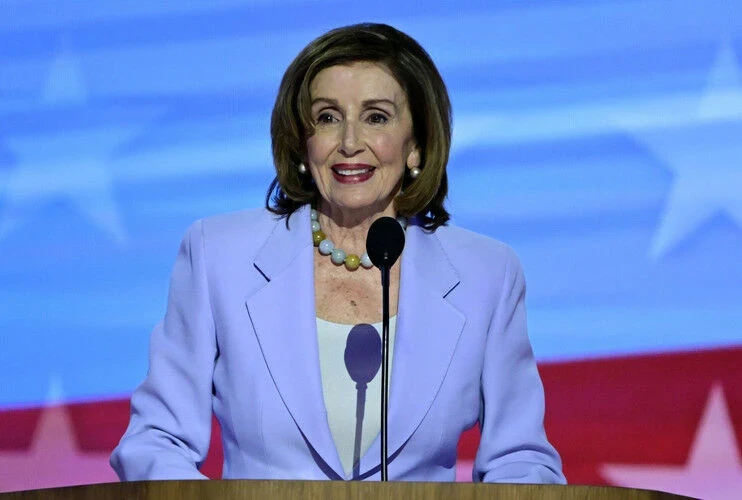
Former Speaker of the U.S. House of Representatives Nancy Pelosi is leaving Congress
Photo from the internet Nancy Pelosi, the 85-year-old congresswoman and chief opponent of Donald...

Italian journalist fired after question comparing actions of Russia and Israel
According to information from The Guardian, an Italian journalist was fired after asking a...
Temperature Records. The coldest temperature on October 25 in Bishkek was recorded in 1939.
On October 25, 1939, it became the coldest day for the capital of Kyrgyzstan, where the temperature...
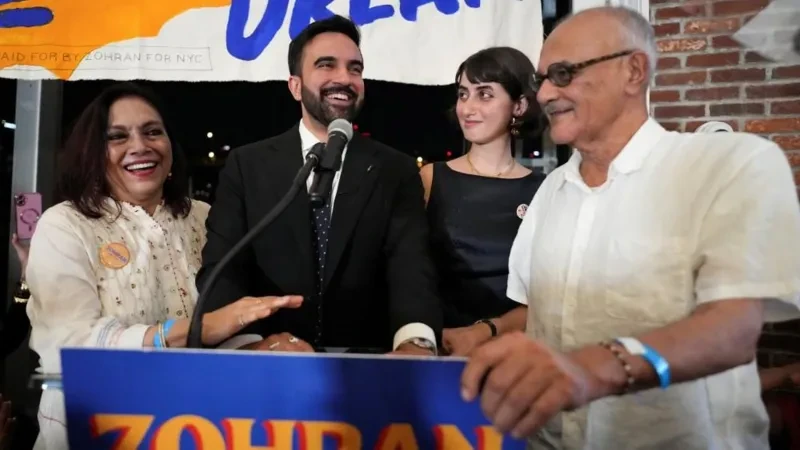
A third of New York's Jewish voters voted for a Muslim candidate. Israel accused the Jews who supported Mamdani of "antisemitism."
According to a CNN poll, about 33% of Jewish voters in New York cast their votes for Mamdani,...
The Kremlin commented on the US sanctions and the cancellation of the Trump-Putin meeting
On the TV channel "Russia 1," Dmitry Peskov, the press secretary of the President of...
The CEC denied two citizens registration as candidates for deputies of the Jogorku Kenesh.
Two applications for the registration of candidates for deputies of the Jogorku Kenesh were...

In Turkey, authorities took control of an opposition TV channel and arrested its editor-in-chief.
Turkish authorities have taken control of the independent television channel Tele1, known for its...
NATO Secretary General: The Supply of "Tomahawk" Missiles to Ukraine is Under Review by the U.S. President
At a press conference in London, held as part of the "coalition of the willing" meeting,...
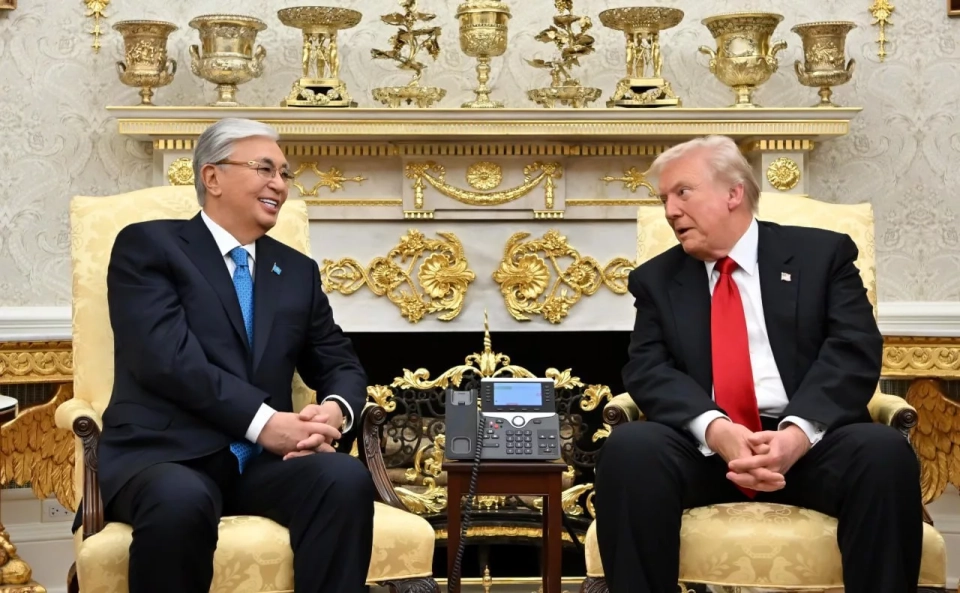
Tokaev and Trump Held Talks at the White House
Important issues were discussed at the meeting, and, as reported by Akorda, details will be...

Saudi Arabia is building an army comparable to the armed forces of Israel
According to Daskal, regions that were previously considered bastions of stability are now under...
How to Understand That You Are Not Just in a Bad Mood, but Have Depression, Explained by a Psychiatrist
Yulia Ulitina, a psychiatrist, explained in an interview on "Birinchi Radio" how to...

The party of President Javier Milei in Argentina won the midterm elections for parliament.
According to preliminary data, after processing nearly 99% of the ballots, Milei's party...
Trump stated that the cancellation of the summit with Putin is related to Russia's position on Ukraine.
At a meeting with Hungarian Prime Minister Viktor Orban at the White House, Trump noted that the...

The New York Times: As They Draw Closer to Trump, Leaders of Former Soviet Republics in Central Asia Limit Their Dependence on Moscow and Beijing
Trump became the first president to gather the leaders of all five Central Asian countries at the...
The Supreme Court is Preparing to Implement Online Proceedings
As part of the reform of the judicial system, active work is being done to improve its internal...
Trade War. The USA and China Agree on the Framework of a Potential Deal
This week, a meeting is expected between the presidents of the United States and China, during...
Riders Filmed on Video Amidst Cars on the Highway in the Panfilov District
A recent video that became popular on social media shows people playing ulak tartys (goat dragging)...
Gulcho Became a City, and They Appointed a Mayor There
Recently, the settlement of Gulcho in the Alay District of the Osh Region was granted city status....
Politics, Tourism, and Business Between Kyrgyzstan and Mongolia: An Interview with the Ambassador of the Kyrgyz Republic, Artykbaev
Since the official opening of the Embassy of Kyrgyzstan in Mongolia in July 2023, bilateral...

The number of victims from Israeli strikes on Gaza since the evening of October 28 has exceeded 90
Reports of airstrikes are coming from the southern part of the sector, as well as from the city of...

At the charity festival "Kyrgyzstan - the Country of Skiing and Winter Recreation - 2014," over 65,000 soms were raised.
On February 15, the Fifth Tourism Festival "Kyrgyzstan - the country of skiing and winter...
